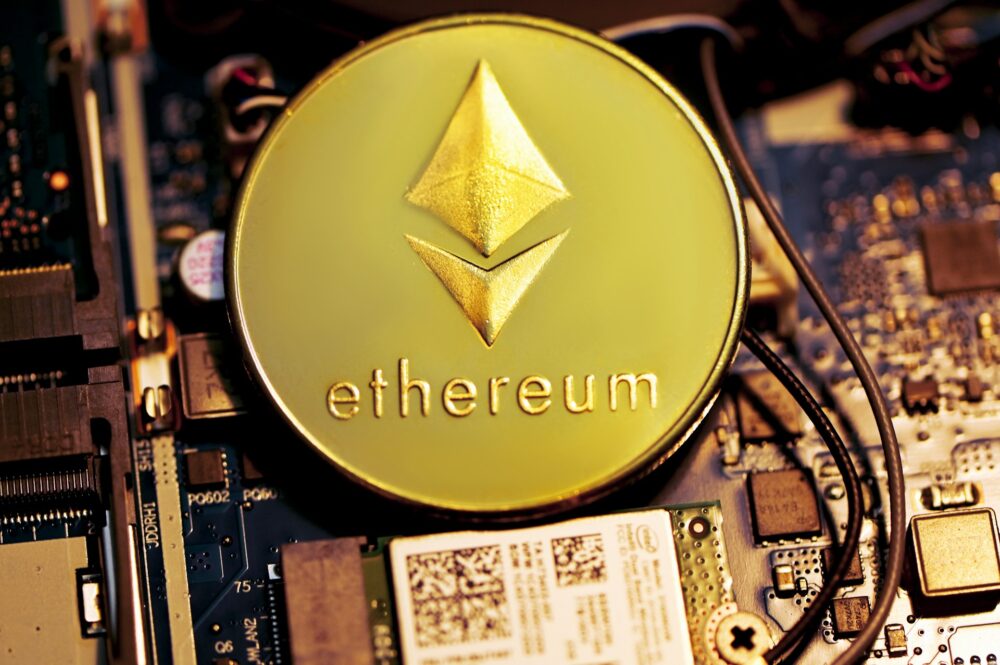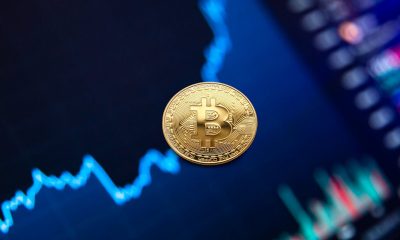Crypto
Ethereum ETFs: How Market Analysts Assess the Chances of Approval
The approval of Bitcoin ETFs by the SEC was a hanging game until the last minute. Ethereum ETFs are not a priority for the SEC and a decision will likely be postponed until after the US elections in November, Seiberg predicts. Even though the crypto industry is longing for Ethereum ETFs as soon as possible, Wall Street is much more cautious when predicting the timing.

After the approval of Bitcoin ETFs in the USA, the crypto industry hopes that Ethereum (ETH) will also come to classic exchanges in this way. But does the Securities and Exchange Commission (SEC) agree? Experts disagree.
It ultimately took around ten years until the US Securities and Exchange Commission finally approved Bitcoin ETFs for the first time on January 10th . Now the eyes are turning to possible Ethereum ETFs, with which the number two cryptocurrencies could also appeal to new investors. The SEC has received various applications and the specialist portal “ The Block ” has asked market participants about their assessments.
Find out when analysts believe the first Ethereum ETFs will be approved by the SEC and find the latest business news of the day with our companion app Born2Invest.
There is widespread agreement that there is demand for Ethereum ETFs
This is expressed, for example, by the application by the world’s largest asset manager BlackRock, which caused a short-term price jump for Ethereum (ETH) in November.
But for this BlackRock Ethereum ETF application, the SEC announced yesterday that it would extend its decision deadline until May 10th. In order for the SEC to give the “green light”, it must first decide to classify Ethereum as a non-security, says the major bank JPMorgan. That’s why the chances of getting Ethereum ETFs soon are less than 50 percent.
Anthony Scaramucci, founder of the investment firm SkyBridge Capital, also remains skeptical about Ethereum ETFs. When approving Bitcoin ETFs, the SEC emphasized BTC’s special role among cryptocurrencies and made it clear that it continues to consider most altcoins to be securities. This prevents an Ethereum ETF for the time being, says Scaramucci.
Matt Kunke, analyst at crypto company GSR Markets, is more optimistic. He is tipping 75 percent with an OK from the SEC for Ethereum ETFs in May. Because if the SEC fails, it will be taken to court by applicants like BlackRock and will have to accept defeat.
Matt Hougan from Bitwise points to the history of Bitcoin ETFs. Bitcoin Future ETFs also initially received approval there. Ethereum Future ETFs have been around in the US since last summer. According to Hougan, the SEC’s next logical step would be to no longer deny approval to Ethereum ETFs based on spot price.
In the approval process for Bitcoin ETFs, two experts from the business news agency Bloomberg shined with precise forecasts and background information. Eric Balchunas and James Seyffart are a little more cautious about Ethereum ETFs. Balchunas believes there is a 75 percent chance of a “yes” from the SEC this year. Seyffart, on the other hand, only wants to bet on a 60 to 65 percent probability for Ethereum ETFs this year.
Conclusion: Ethereum ETFs are not a sure-fire success in the USA
The approval of Bitcoin ETFs by the SEC was a hanging game until the last minute and was a close vote of three to two in the board of directors. This is also why Jaret Seiberg from the investment bank TD Cowen thinks that the SEC will first monitor the development of Bitcoin ETFs.
Ethereum ETFs are not a priority for the SEC and a decision will likely be postponed until after the US elections in November, Seiberg predicts. Even though the crypto industry is longing for Ethereum ETFs as soon as possible, Wall Street is much more cautious when predicting the timing.
__
(Featured image by Kanchanara via Unsplash)
DISCLAIMER: This article was written by a third party contributor and does not reflect the opinion of Born2Invest, its management, staff or its associates. Please review our disclaimer for more information.
This article may include forward-looking statements. These forward-looking statements generally are identified by the words “believe,” “project,” “estimate,” “become,” “plan,” “will,” and similar expressions. These forward-looking statements involve known and unknown risks as well as uncertainties, including those discussed in the following cautionary statements and elsewhere in this article and on this site. Although the Company may believe that its expectations are based on reasonable assumptions, the actual results that the Company may achieve may differ materially from any forward-looking statements, which reflect the opinions of the management of the Company only as of the date hereof. Additionally, please make sure to read these important disclosures.
First published in BLOCK-BUILDERS.DE. A third-party contributor translated and adapted the articles from the originals. In case of discrepancy, the originals will prevail.
Although we made reasonable efforts to provide accurate translations, some parts may be incorrect. Born2Invest assumes no responsibility for errors, omissions or ambiguities in the translations provided on this website. Any person or entity relying on translated content does so at their own risk. Born2Invest is not responsible for losses caused by such reliance on the accuracy or reliability of translated information. If you wish to report an error or inaccuracy in the translation, we encourage you to contact us

-

 Crypto5 days ago
Crypto5 days agoBitcoin Traders on DEXs Brace for Downturn Despite Price Rally
-

 Business2 weeks ago
Business2 weeks agoDebt-Fueled Markets, Zombie Corporations, and the Coming Reckoning
-

 Crowdfunding2 days ago
Crowdfunding2 days agoFrom Confiscation to Cooperation: Funding Casa de la PAZ’s Social Transformation
-

 Impact Investing1 week ago
Impact Investing1 week agoGlobal Energy Shift: Record $2.2 Trillion Invested in Green Transition in 2024
























